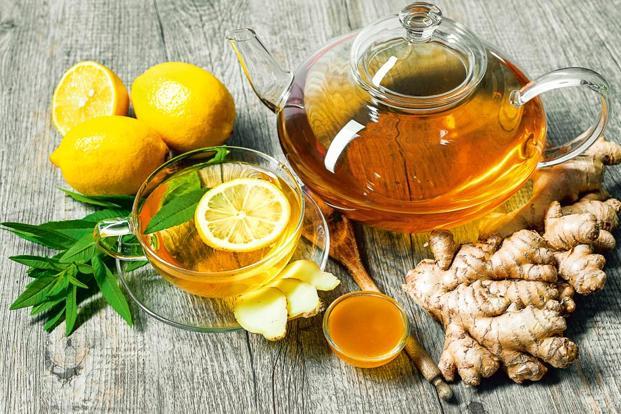The sky is grey, rumbling; the streets are full of puddles of stagnant water, a perfect breeding ground for mosquitoes. “Malaria, dengue, chikungunya cases rise during the monsoon,” says Amitabh Parti, senior consultant, internal medicine at the Fortis Memorial Research Institute (FMRI) in Gurgaon, adjacent to New Delhi. The change in weather rings in viral and flu, and drinking water contamination brings with it diseases like gastroenteritis, cholera and jaundice. That’s not all. The humidity is a fertile ground for skin diseases as well as stomach upsets. “You name it and we see it—allergies, diseases or fungal infections,” says Dr Parti.
The monsoon is hard on the stomach and throat too.
The attack is multifold. Which is why, this season, we asked experts for checklist. These tips could help you ward off illness.
Boost your immunity
Load up on vitamins, especially vitamin C, keep the body hydrated to protect yourself from nose and throat infections, and fortify your immunity. “Home-made fresh juices, warm drinks like honey lemon tea, green tea up immunity,” says Dr Sanjay Sachdeva. Drink lots of fluid to stay hydrated and wash your hands regularly to protect yourself from a sore throat. “Immediately head to an ENT specialist if a scratchy throat or blocked nose problem is persistent,” says Dr Sachdeva.
Don’t push in the wax

During the monsoon, earwax tends to expand inside the ear. This can cause pain and lead to hearing problems. Avoid poking your ear with a cotton bud, says Sanjay Sachdeva, senior consultant, ENT, Max Super Speciality Hospital, New Delhi. “Deep digging can cause permanent damage,” he says. Consult an ENT specialist if the problem persists.
Cover the toes and stay dry

Contrary to what many believe, open toes are more prone to infection, says Vivek Raj, senior consultant, gastroenterology, Max Super Speciality Hospital, New Delhi. “Leptospirosis (a bacterial disease of rodents, dogs and other mammals) is a rare disease but can be serious. It is caused by stepping in puddles or muddy patches during rain,” he says. Wear shoes rather than slippers or sandals.
Your skin is in constant contact with dampness in this season, so you could be prone to fungal infections like Athlete’s foot, ringworm infection, even boils. “The best way to avoid fungal infection is to keep the body dry,” says Sunil Sanghi, senior consultant, dermatology, FMRI, Gurgaon. “Use antibacterial soap, absorbent talc, especially in the groin and feet area, and calamine lotion to keep dampness out.” Also, change your undergarments frequently, especially if you tend to sweat excessively. “Avoid wearing damp clothing in an enclosed air-conditioned office to prevent chest infections and colds,” says ‘Mint’ columnist Madhuri Ruia, who runs the fitness centre Integym in Mumbai.
Put kerosene in stagnant water

Puddles are a haven for mosquitoes, the kind that spread malaria, dengue and chikungunya. It’s essential that you prevent any breeding grounds for mosquitoes in and around your house. “Empty the water-cooler tank and dry pools of water around you,” says Dr Parti. Cover every source of water, be it wells or storage tanks, and use insect repellents. “Put a few drops of kerosene oil in every puddle or pool of stagnant water around your house as it kills mosquito larvae.”
Up your water intake

“The high temperatures during the monsoon, combined with extremely humid conditions, can easily cause dehydration and imbalance in the body’s electrolyte levels,” says New Delhi-based fitness and wellness expert Vesna Pericevic Jacob. This can lead to cramps, headaches, lack of energy, even blood pressure fluctuations. “All this can be avoided through proper hydration,” she says. Drink plenty of water and include salted ‘nimbu pani’ and coconut water to maintain the body’s electrolyte balance.
Avoid oily, deep-fried food

For a clear skin, avoid deep-fried foods, says Shikha Sharma, a preventive health and nutrition expert based in the Capital. “The monsoon season isn’t good for the skin, and oily foods in particular increase heat in the body and cause rashes and skin problems.” She suggests including finger millets and oats in the diet, for these remove extra oils from the food that’s being digested. She also recommends green tea, which is loaded with antioxidants, to guard against pimples, and yellow vegetables like pumpkin, which are a good source of vitamin B-complex and give a natural glow to the skin.
To read the complete article, please head to livemint.com






